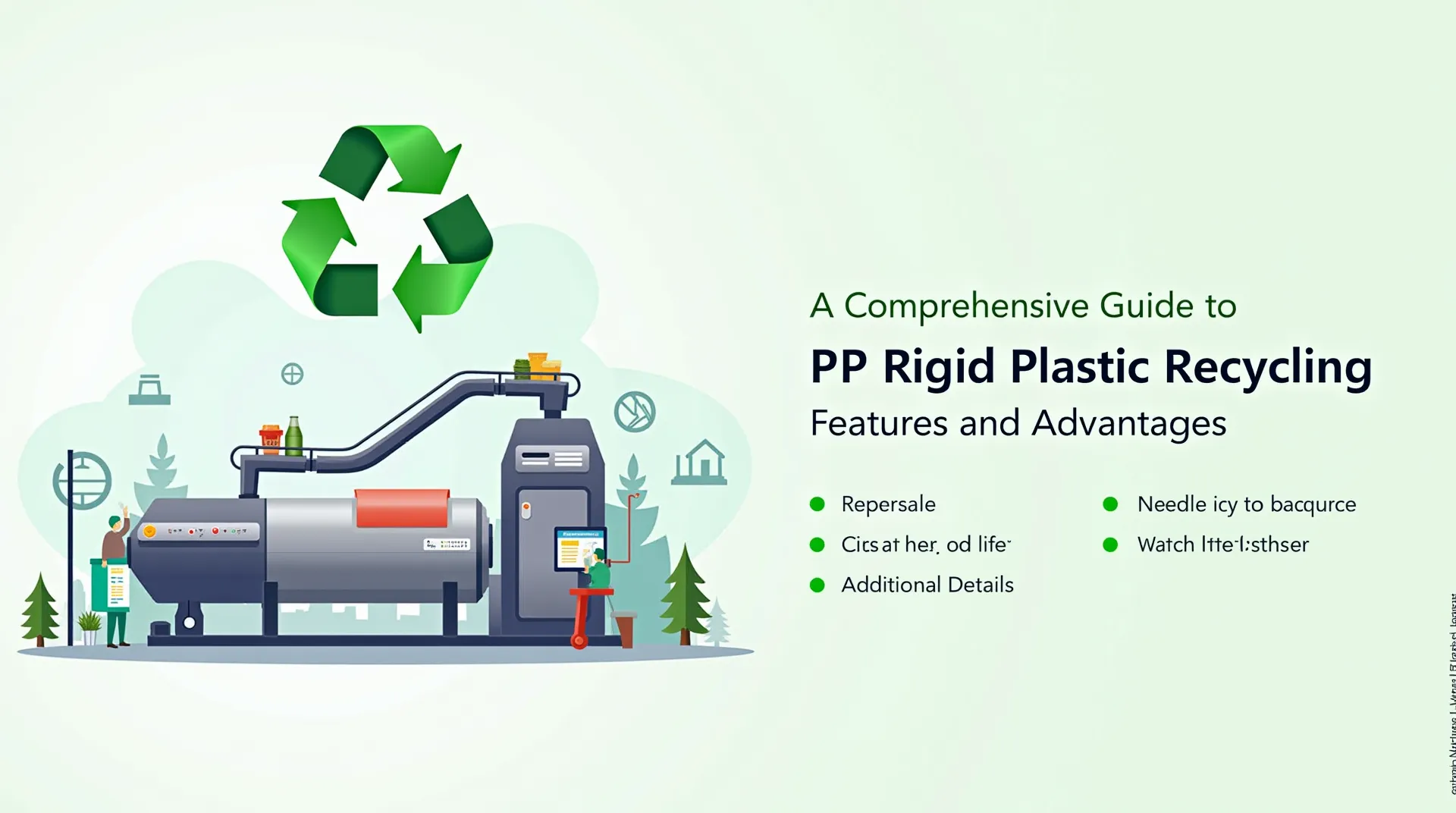PP Rigid Plastic Recycling Machine Guide: Features, Benefits & Decision Essentials
Energycle Machine Homepage – PP/HDPE/PVC Rigid Plastic Washing Line
What Is PP Rigid Plastic Recycling & Why Is It Essential?
PP rigid plastic recycling machine systems process materials like pipes, crates, bumpers, drums, and bottles by breaking down, washing, and transforming waste into reusable pellets. With polypropylene (PP) recycling in North America expected to surge, efficient recycling technology is crucial both for profitability and environmental compliance.
- Sources: Automotive, construction, electronics, food packaging
- Uses: Granules for manufacturing new products, secondary raw materials
- Environmental Impact: Reduces landfill, supports sustainability goals, meets regulatory standards
– Automated sorting for higher accuracy and throughput
– Advanced washing and filtration for purity and efficiency
– Pelletizing upgrades for consistent product quality
– Custom configurations for diverse factory needs
How PP Rigid Plastic Recycling Machines Work
Main Process Stages
- Shredding/Size Reduction: Industrial-grade shredders and crushers break up bulky items into homogeneous flakes.
- Washing & Purification: Multi-stage washing lines with friction washers, hot washing, and flotation systems remove dirt, adhesives, and contaminants—key for price and reusability.
- Drying: Hot-air dryers and dewatering solutions ensure flakes are ready for pelletizing.
- Pelletizing: Controlled extrusion and cutting produce uniform pellets. Recyclers seek stability, flow-rate, and surface smoothness for market acceptance.
Smart Automation & Monitoring
- PLC control system enables precise machinery management & minimizes manual oversight.
- Real-time monitoring boosts consistency and operational uptime.
- Integrated closed-loop water systems reduce costs & environmental footprint.
Professional Advantages of Energycle’s PP Rigid Plastic Recycling Machines
Advantages
- Engineered for continuous, high-volume operation with minimal downtime.
- Customizable—handles 500 kg/h to 4000 kg/h, suitable for diverse applications.
- Energy-efficient motors and heat recovery optimize operational costs.
- Automated feed and sorting reduce labor, improve consistency.
- Water-saving configurations make environmental compliance simpler.
- Expert lifecycle support, training, and spare parts availability from Energycle.
Potential Drawbacks
- Initial investment may be higher than for small-scale machines.
- Requires professional installation and technical adjustment.
- Quality of input materials (e.g. contamination, mixed plastics) can affect results—pre-sorting is recommended.
Choosing the Right PP Rigid Plastic Recycling System: A Decision Guide
- Estimate your waste volume and types—seek throughput that matches your requirements.
- Demand highly efficient washing and contamination control for maximum pellet value.
- Ensure automation, monitoring, and support fit your team’s skill level.
- Select vendors with lifecycle support and transparent spare parts availability—Energycle offers dedicated service.
- Check certifications and compliance with local regulations and standards (such as CE, UL, or EPA).
- Compare reviews from other professional buyers and recycling plants.
Market Applications & Future Outlook
- The North American market is driving strong growth in PP recycled materials—driven by ecological regulation and consumer preference.
- Energycle technology aligns with circular economy goals, delivering reusable plastics validated for automotive, packaging, construction, and electronics industries.
- New technologies—AI sorting, closed-loop water treatment, and multi-stage pelletizing—improve profitability and sustainability.
- Professional buyers value reliability, vendor support, and lifecycle total cost of ownership over initial price.



